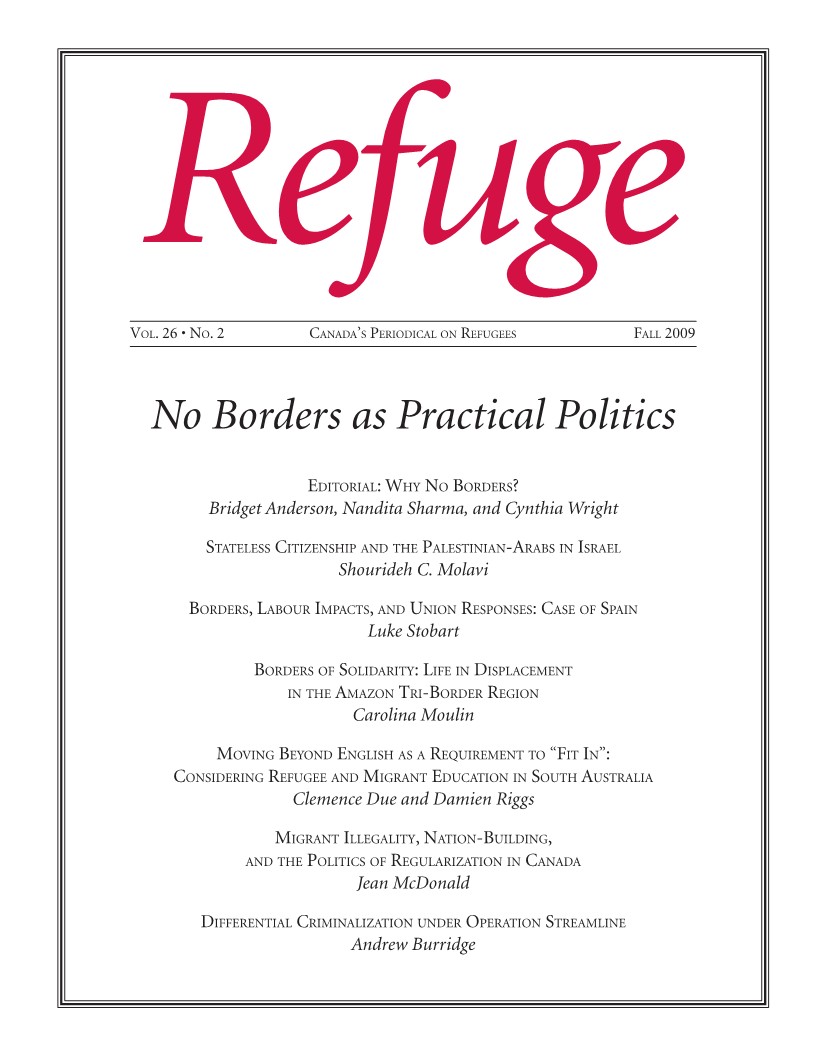Creating Higher Burdens: The Presumption of State Protection in Democratic Countries
DOI:
https://doi.org/10.25071/1920-7336.32089Keywords:
Canada, Mexican asylum-seekers, state protection, designated countries of origin, domestic violence, refugee determination, immigration policyAbstract
The author examines the burden on refugee claimants at the Immigration and Refugee Board in Canada to provide evidence that their home state cannot protect them. In particular, the paper discusses the growing trend of adjudicators taking de facto judicial notice of the fact that a country is democratic to make the finding that there is state protection for claimants. The author argues that the practice of labelling countries as democratic and making state protection findings upon the finding is a biased and unhelpful practice when evaluating the issue of whether state protection exists. The paper discusses what “democracy” means and the problems associated with defining it. It will discuss how judicial notice of whether a state is democratic can affect an analysis of state protection in the example of claimants fleeing domestic abuse in Mexico.
Metrics
Downloads
Published
How to Cite
Issue
Section
License
Copyright (c) 2011 Jamie Chai Yun Liew

This work is licensed under a Creative Commons Attribution-NonCommercial 4.0 International License.
Refuge authors retain the copyright over their work, and license it to the general public under the Creative Commons Attribution-Non Commercial License International (CC BY-NC 4.0). This license allows for non-commercial use, reproduction and adaption of the material in any medium or format, with proper attribution. For general information on Creative Commons licences, visit the Creative Commons site. For the CC BY-NC 4.0 license, review the human readable summary.







